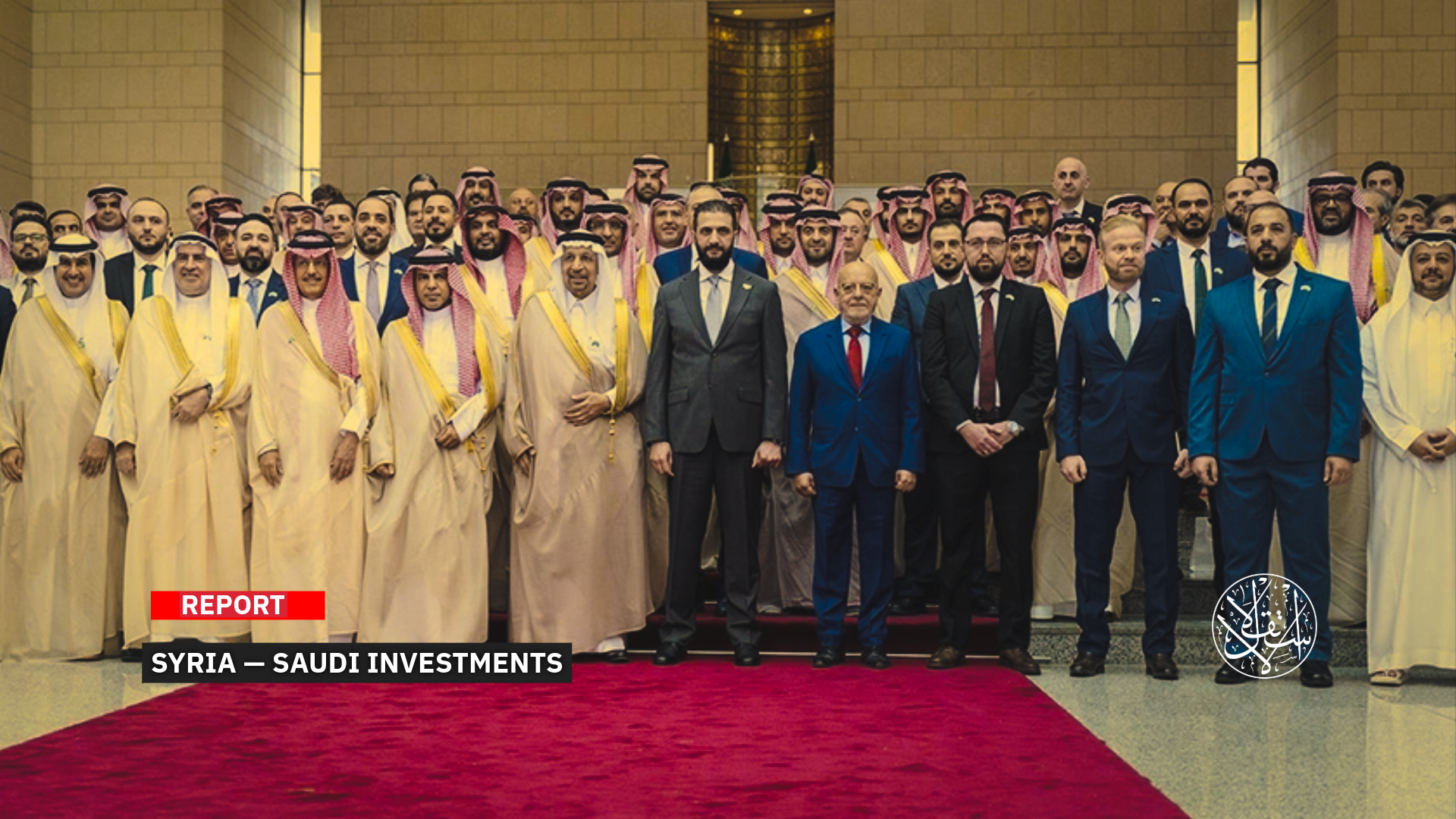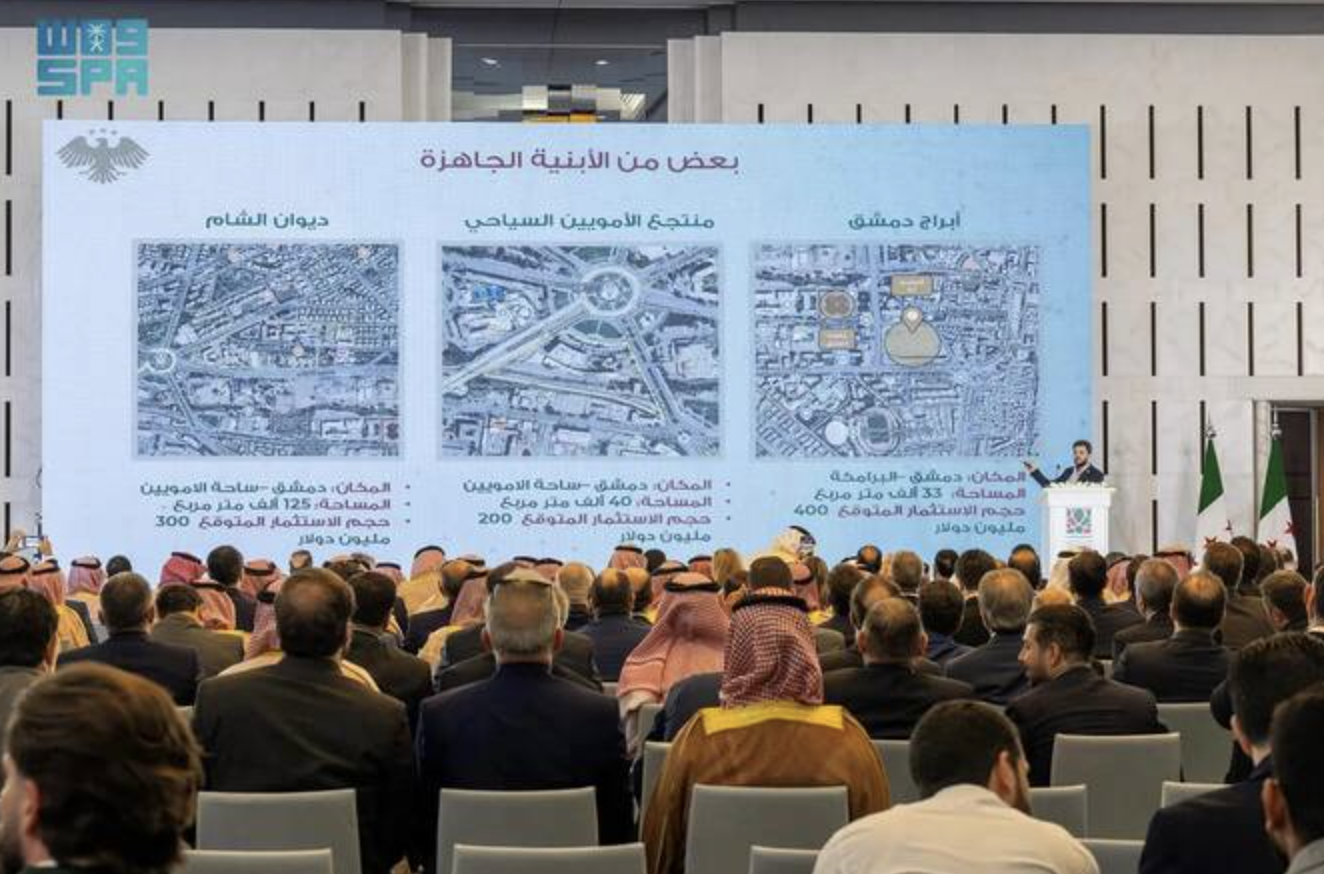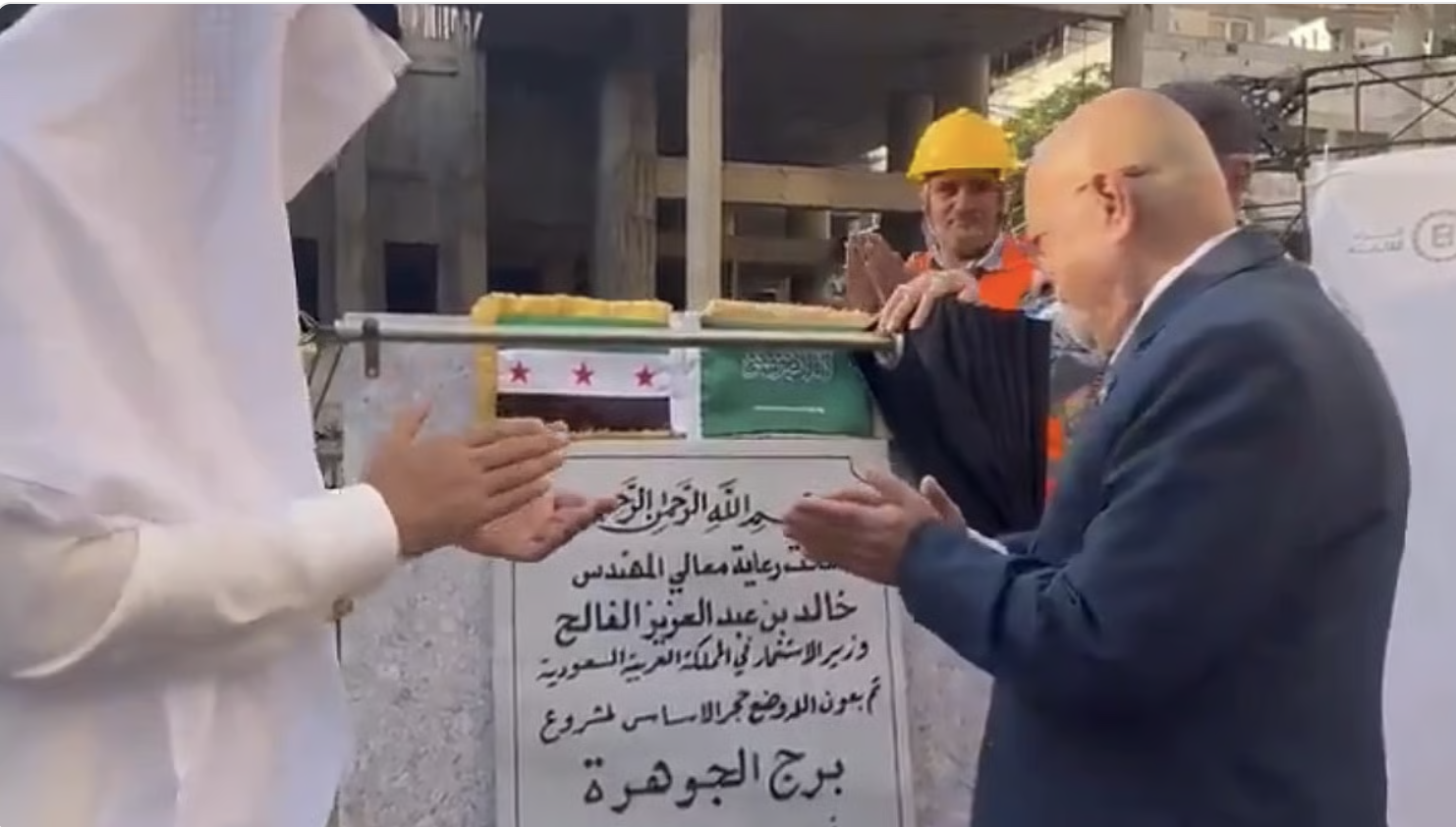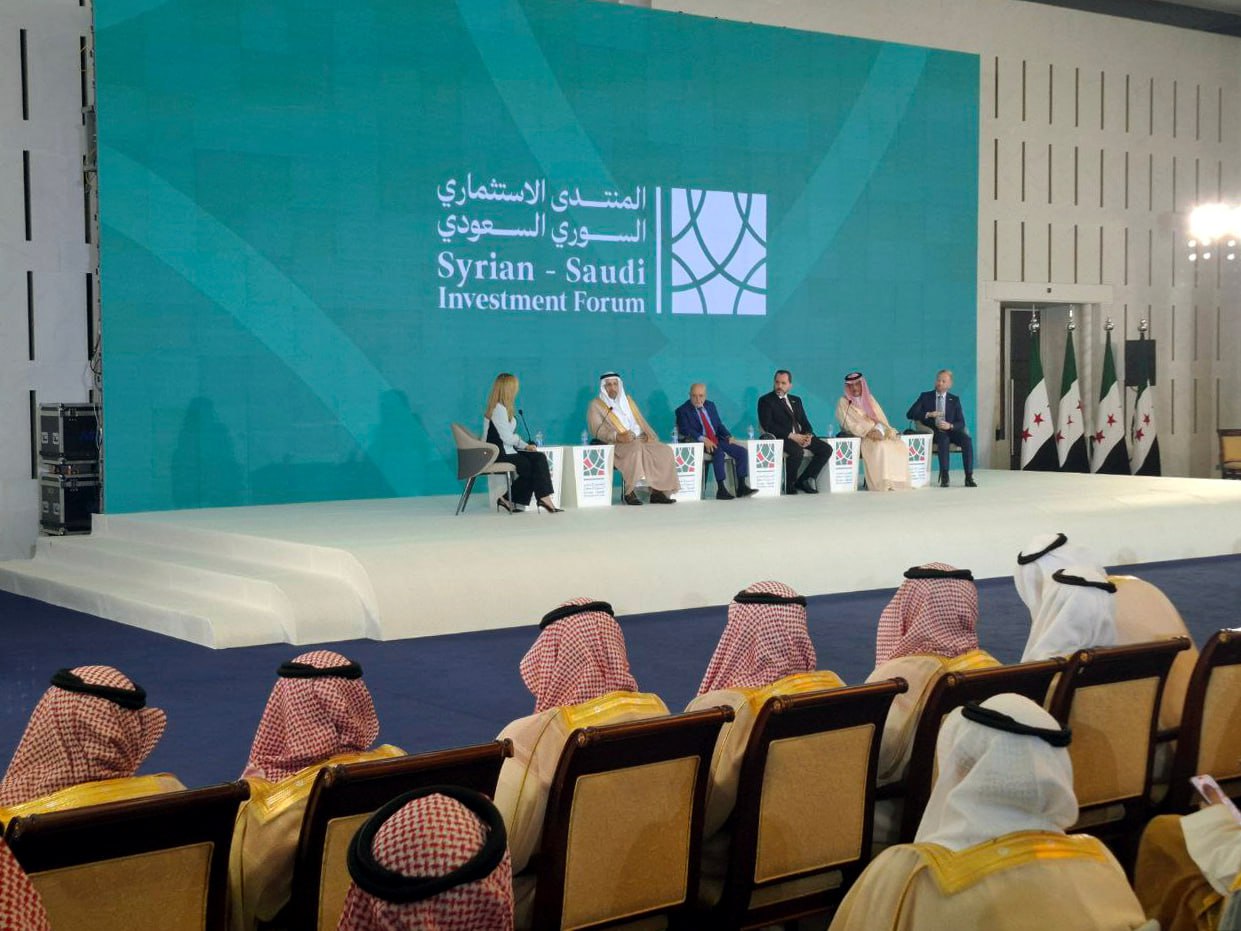Economic and Political Motives: Why Is Saudi Arabia Investing Billions in Syria?

“We are committed to strengthening relations with Syria, particularly in the economic and investment spheres.”
Saudi Arabia officially entered the investment scene in Syria after months of waiting, following the fall of Bashar al-Assad’s regime. Analysts see the move as a significant push from Riyadh to accelerate the recovery of Syria’s collapsed economy.
As a concrete step, Saudi Investment Minister Khalid al-Falih arrived in Damascus on July 23, 2025, leading a delegation of over 150 representatives from both the public and private sectors to explore potential investment partnerships.

Saudi Support for Syria
The Saudi minister and his delegation took part in the Saudi-Syrian Investment Forum 2025, which took place in Damascus on July 24, 2025.
According to Syria’s official news agency, SANA, al-Falih stated that the forum would include the signing of 47 agreements and memoranda of understanding, valued at up to 24 billion Saudi riyals (approximately $6.4 billion).
Speaking at the forum’s opening session at the Presidential Palace, attended by interim President Ahmed al-Sharaa, al-Falih said, “During this forum, we will witness the signing of 47 agreements and memoranda of understanding with a total value approaching SR24 billion.”
He noted that the agreements would include a commercial project in Homs and the construction of three cement factories.
Al-Falih also announced cybersecurity agreements worth 4 billion riyals (around $1.66 billion).
He added that the Saudi company “Bayt Alebaa” would sign a multi-billion riyal deal to execute a major commercial project in Homs, which he said would benefit the Syrian people.
Al-Falih emphasized Saudi Arabia’s commitment to strengthening ties with Syria, particularly in the economic and investment sectors, noting that the forum includes more than 20 government agencies and 100 private companies.
“We are committed to strengthening relations with Syria, particularly in the economic and investment spheres. This forum is attended by over 20 government entities and 100 private sector companies.”
He invited Syrian investors to visit Saudi Arabia and explore available opportunities, stating that they would be provided with full support.
Looking ahead, the Saudi minister said the Kingdom is preparing for significant investments in Syria across a wide range of sectors, including energy, real estate, industry, infrastructure, financial services, healthcare, agriculture, telecommunications, IT, construction, and education.
“In this forum, we are not building new bridges — because close social, economic, and cultural ties have long united our two nations. Since ancient times, the Arabian Peninsula and the Levant have been vital links in global trade,” said al-Falih.
On the first day of the Saudi delegation’s visit, the Saudi minister laid the foundation stone for al-Jawhara Tower, one of the Kingdom’s investment projects in Damascus.
According to the Ministry of Investment, the tower is a fully integrated real estate project combining office space, hospitality, and retail, spanning over 25,000 square meters.
The project includes 15 floors of office space covering 6,500 square meters, 4,200 square meters of parking, and 1,300 square meters of retail space. It will also feature 15 floors of hotel units across 6,500 square meters, offering hospitality services and a panoramic restaurant.
In February 2025, Riyadh was the destination of al-Sharaa’s first official foreign visit, during which he met with Saudi Crown Prince Mohammed bin Salman.
During his second visit in May 2025, al-Sharaa and the Crown Prince met with U.S. President Donald Trump during the latter’s visit to Riyadh.
Following that meeting, Trump announced that the United States would lift sanctions on Syria. The decision was officially implemented on June 30, 2025. The gradual easing of sanctions has since helped boost the Syrian economy.
Trump said the move came in response to appeals from Crown Prince Mohammed bin Salman and Turkish President Recep Tayyip Erdogan.
Shortly after, on May 31, 2025, Saudi Foreign Minister Faisal bin Farhan visited Damascus and confirmed that Saudi Arabia would be among the leading nations supporting Syria’s reconstruction and economic recovery.

A Strategic Shift
Saudi Arabia has opened a new chapter of significant investments in Syria, a country seeking recovery, economic revival, and improvement of living conditions for a population where more than 90 percent live below the poverty line, according to international organizations.
Saudi investments span all sectors, including energy, real estate, industry, infrastructure, financial services, as well as health, agriculture, telecommunications, information technology, contracting, education, and more.
These investments will be distributed across Syria’s 14 governorates and will not be limited to a specific region.
“Economic issues cannot be separated from political ones, especially after Syria restored relations with most Arab countries, and there is now a Gulf rapprochement with Syria, particularly with Saudi Arabia,” economic researcher and analyst Radwan al-Dibs told Al-Estiklal.
“There is both economic and political Saudi support for Syria, which reflects the Kingdom’s firm stance with the Syrian people during the current economic and social crisis.”
“Saudi Arabia needs the fertile investment environment available in Syria, especially given the reconstruction phase and the high demand for liquidity,” al-Dibs added.
“Most Saudi agreements in Syria focus on infrastructure, industrial cities, production facilities, real estate, restoring water, energy, electricity, and health services, as well as some productive projects that the country urgently needs at this stage.”
“Saudi support represents a major boost to the labor market, increases liquidity, attracts foreign currency, and consequently raises demand for the Syrian pound. It also strengthens confidence in the Syrian economy, encouraging countries and companies to enter agreements and investments in Syria,” according to the researcher.
“Saudi Arabia’s investment in clear, carefully planned projects marks a major step and signals a strategic shift in support of Syria’s recovery.”

Syria’s Stability
There is no doubt that Saudi Arabia’s decision to inject massive investments into Syria at this time reflects a commitment Saudi officials describe as “a small part of the partnerships and joint work” between Riyadh and Damascus. This underscores the Kingdom’s strong desire to establish a lasting strategic partnership between the two countries.
Notably, during the Saudi-Syrian Investment Forum on July 24, 2025, Mohammed Abunayyan, chairman of the Syrian-Saudi Business Council, stated that Saudi Arabia will lead global alliances to invest in Syria.
Abunayyan emphasized that Saudi Arabia does not see Syria as unstable or fragmented.
Saudi Arabia and Qatar jointly settled Syria’s debts with the World Bank, enabling Syria to access new loans.
Eyman Dasouki, a researcher at Omran for Strategic Studies, told Al-Estiklal that “Saudi Arabia’s regional moves stem from its responsibilities as a leading regional power, aligned with its Vision 2030 and the need to ensure stability in the Middle East, especially Syria.”
“Saudi Arabia balances its strategic vision with diplomatic efforts and economic engagement to maximize its impact and sustainability. The Kingdom has embraced the region’s strategic shift, actively employing diplomacy on regional and international levels to support Syria’s transformation. This includes securing a U.S. commitment to lift sanctions on Syria during the American president’s visit to Saudi Arabia.”
“With these developments in place, Saudi Arabia carefully evaluated possible economic engagements in Syria. Now, the ground is ready for Saudi investments to enter the country,” the researcher added.
Dasouki sees a clear Saudi assessment that the main challenge to Syria’s stability is economic. Therefore, Saudi Arabia must take effective steps to stimulate the Syrian economy through diverse investments. These investments also send a message that the Kingdom is committed to Syria’s stability, requiring both political and economic involvement.
The new Syrian leadership aims to launch economic recovery and reconstruction after the fall of Bashar al-Assad’s regime on December 8, 2024.
However, the government continues to face significant challenges in securing sufficient revenue to fund new expenditures amid a growing budget deficit, declining exports, and limited foreign investment.
Damascus is currently reviewing its investment law to foster a more attractive environment for international investors, especially as sanctions are gradually lifted. The Syrian government is relying on foreign capital to revive infrastructure and essential public services.
Sources
- Riyadh Announces Investment of 24 Billion Riyals in Syria: What Does It Include? [Arabic]
- Saudi Minister: Syria Investment Forum to Feature $6.4 Billion in Agreements [Arabic]
- Laid the Foundation Stone for the Saudi al-Jawhara Tower in the Heart of Damascus [Arabic]
- Large Saudi Delegation Arrives in Damascus to Hold Saudi-Syrian Forum Ordered by the Crown Prince [Arabic]
- Saudi Arabia signs $6.4bn investment deals with Syria to boost reconstruction
- Saudi Arabia pledges to invest billions of dollars in Syria
- Syria adopts Saudi investment protection agreement to attract investors
- Syria and Saudi Arabia sign more than $6 billion in investment deals












